The BEST episodes of American Experience
Every episode of American Experience ever, ranked from best to worst by thousands of votes from fans of the show. The best episodes of American Experience!
Presents an absorbing look at the personalities, events and resources that have had a profound impact on the shaping of America's past and present.
#1 - T.R.: The Story of Theodore Roosevelt (2): The Bully Pulpit
Season 9 - Episode 2 - Aired 10/6/1996
#2 - Jesse James
Season 18 - Episode 7 - Aired 2/6/2006
An examination of the real details of the notorious outlaw and his brother.
#3 - Eyes on the Prize (3): Ain't Scared of Your Jails (1960-1961)
Season 19 - Episode 3 - Aired 10/9/2006
Black college students take a leadership role in the civil rights movement as lunch counter sit-ins spread across the South. "Freedom Riders" also try to desegregate interstate buses, but they are brutally attacked as they travel.
#4 - Eyes on the Prize II (1): The Time Has Come (1964-1966)
Season 20 - Episode 3 - Aired 2/3/2008
Examines a lead member of the Nation of Islam - Malcolm X. It also chronicles the political organizing work of the Lowndes County Freedom Organization (LCFO) in Alabama and the shooting of James Meredith during the March Against Fear.
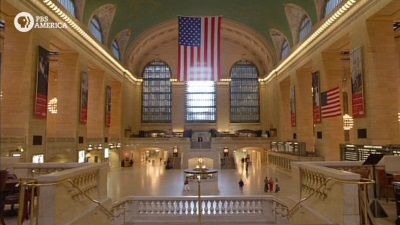
#5 - Grand Central
Season 20 - Episode 5 - Aired 2/4/2008
The story of the origins of New York's re-imagined Grand Central Station in the early 20th century, proclaimed in its time as the most majestic and advanced train terminal of all.
#6 - Eyes on the Prize II (3): Power! (1966-1968)
Season 20 - Episode 6 - Aired 2/10/2008
Chronicles the election of Carl Stokes as the mayor of Cleveland and one of the first two African Americans to become mayor of a major U.S. city. The film also covers the formation of the Black Panther Party (BPP) and community control of the Ocean Hill-Brownsville school district in Brooklyn during the New York City teachers' strike of 1968.
#7 - Eyes on the Prize II (5): Ain't Gonna' Shuffle No More (1964-1972)
Season 20 - Episode 8 - Aired 2/17/2008
Chronicles the emergence of boxer Muhammad Ali, the student movement at Howard University, and the gathering of the National Black Political Convention in Gary, Indiana.
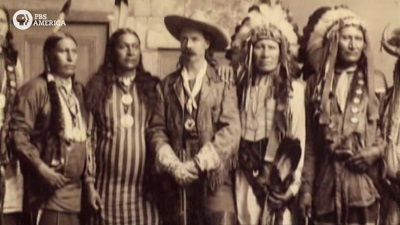
#8 - Buffalo Bill
Season 20 - Episode 13 - Aired 2/25/2008
The varied career of William Cody - from western legend to even greater fame in preserving the culture and mystique of the lifestyle through his "Wild West" shows.
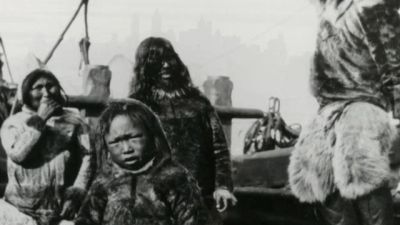
#9 - Minik: The Lost Eskimo
Season 20 - Episode 14 - Aired 3/31/2008
A documentary of a young Greenland Inuit who experiences New York City at the end of the 19th century.
#10 - T.R.: The Story of Theodore Roosevelt (4): Black Care
Season 9 - Episode 4 - Aired 10/7/1996
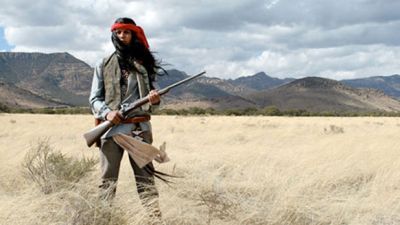
#11 - We Shall Remain (4): Geronimo
Season 21 - Episode 8 - Aired 5/4/2009
A portrait of the Chiracahua Apache who was one of the last Native Americans to continue armed resistance in North America.
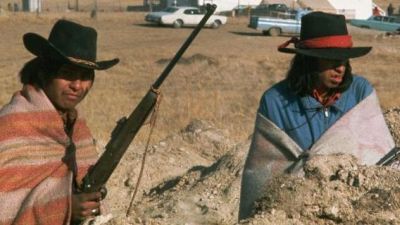
#12 - We Shall Remain (5): Wounded Knee
Season 21 - Episode 9 - Aired 5/11/2009
Rebellious Lakota and allies take up arms in 1973 and force an examination of the failures of the reservation system in the United States.
#13 - Lindbergh
Season 3 - Episode 1 - Aired 10/1/1990
After his famous flight, Charles Lindbergh becomes known to all the world but struggles with life in the limelight.
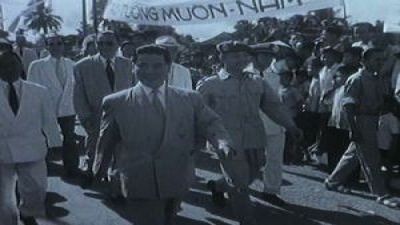
#14 - Vietnam: A Television History (2): America's Mandarin
Season 9 - Episode 14 - Aired 5/26/1997
The United States is drawn into Vietnam through its support − then abandonment − of South Vietnam's president, Ngo Dinh Diem, who is assassinated in a coup. An edited re-broadcast of the 1983 series Vietnam: A Television History.
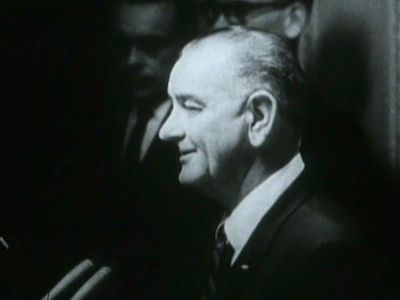
#15 - Vietnam: A Television History (4): America Takes Charge
Season 9 - Episode 16 - Aired 6/9/1997
With the South Vietnamese army in disarray, the U.S. military assumes control of the war, leading to increased American casualties in a country both beautiful and horrific. An edited re-broadcast of the 1983 series Vietnam: A Television History.
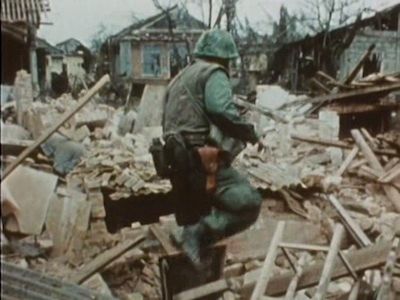
#16 - Vietnam: A Television History (6): Tet 1968
Season 9 - Episode 18 - Aired 6/23/1997
North Vietnam's dramatic offensive on the lunar New Year stuns American military and political leaders, leading to calls for the withdrawal of U.S. troops. An edited re-broadcast of the 1983 series Vietnam: A Television History.
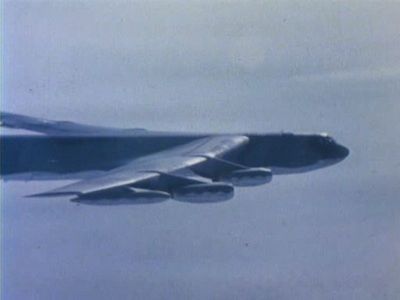
#17 - Vietnam: A Television History (8): Cambodia and Laos
Season 9 - Episode 20 - Aired 7/7/1997
With fighting already spread to neighboring Laos, President Richard Nixon orders a secret bombing campaign against Cambodia, which will soon endure a nightmarish post-war holocaust. An edited re-broadcast of the 1983 series Vietnam: A Television History.
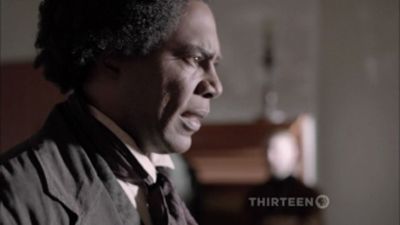
#18 - The Abolitionists: 1838-1854
Season 25 - Episode 2 - Aired 1/15/2013
See how the activities of the five principals intersect and affect the anti-slavery movement.
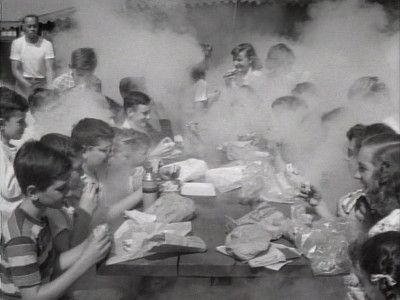
#19 - Rachel Carson's Silent Spring
Season 5 - Episode 11 - Aired 2/8/1993
Her 1963 warnings about the effects of pesticides and herbicides - especially DDT - sparked a revolution in environmental policy and created a new ecological consciousness.
#20 - The Crash of 1929
Season 3 - Episode 8 - Aired 11/19/1990
The unbounded optimism of the Jazz Age and the shocking consequences when reality finally hit on October 29th, ultimately leading to the Great Depression.
#21 - Eyes on the Prize (2): Fighting Back (1957-1962)
Season 19 - Episode 2 - Aired 10/2/2006
States' rights loyalists and federal authorities collide in the 1957 battle to integrate Little Rock's Central High School, and again in James Meredith's 1962 challenge to segregation at the University of Mississippi. Both times, a Southern governor squares off with a U.S. president, violence erupts -- and integration is carried out.
Watch Now:Apple TV#22 - Eyes on the Prize II (6): A Nation of Law? (1968-1971)
Season 20 - Episode 9 - Aired 2/17/2008
Chronicles the leadership and assassination of Fred Hampton of the Black Panther Party (BPP) in Chicago. The second part of the film covers the Attica Prison riot in Attica, New York.
#23 - Eyes on the Prize II (8): Back to the Movement (1979-mid 80s)
Season 20 - Episode 12 - Aired 2/24/2008
Covers the Miami riot of 1980 and the election of Harold Washington as the first African-American mayor of Chicago. The film finishes with an overview of the Civil Rights Movement and its effect upon the United States and the world.
#24 - God Bless America and Poland, Too
Season 3 - Episode 5 - Aired 10/22/1990
Episode focusing on Polish immigration in the 1910s and the contributions of Poles to the United States.
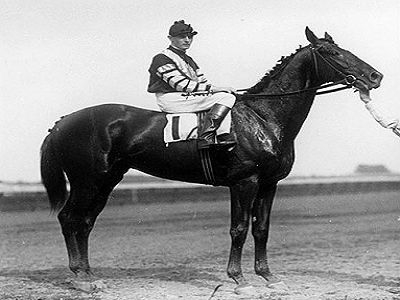
#25 - Seabiscuit
Season 15 - Episode 11 - Aired 4/21/2003
He was boxy, with stumpy legs that wouldn't completely straighten, a short straggly tail and an ungainly gait, but though he didn't look the part, Seabiscuit was one of the most remarkable thoroughbred racehorses in history. In the 1930s, when Americans longed to escape the grim realities of Depression-era life, four men turned Seabiscuit into a national hero. They were his fabulously wealthy owner Charles Howard, his famously silent and stubborn trainer Tom Smith, and the two hard-bitten, gifted jockeys who rode him to glory. By following the paths that brought these four together and in telling the story of Seabiscuit's unlikely career, this film illuminates the precarious economic conditions that defined America in the 1930s and explores the fascinating behind-the-scenes world of thoroughbred racing.